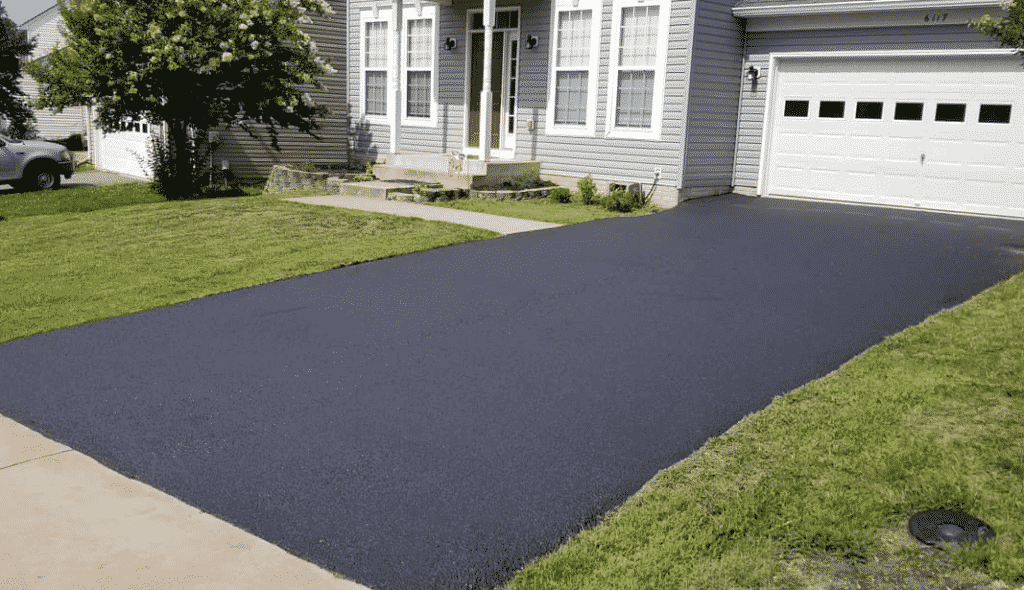Enhance Durability with Cold Mix Asphalt: Specialist Sealing Solutions
Enhance Durability with Cold Mix Asphalt: Specialist Sealing Solutions
Blog Article
Cold Mix Asphalt Vs. Hot Mix Asphalt: Which Is Right for You?

Composition Differences
Cold mix and hot mix asphalts vary substantially in their composition, with distinct characteristics that impact their efficiency and applications. Cold mix asphalt is generated by emulsifying the asphalt binder with water and an emulsifying agent prior to blending it with aggregate. This method enables the asphalt to be workable at reduced temperature levels, making it ideal for short-lived repair services and for use in chillier climate problems. Warm mix asphalt, on the various other hand, is made at high temperature levels, usually between 300-350 ° F, which helps to accomplish better compaction and a much more durable end product. The warm mix asphalt production process involves heating up the accumulation and asphalt binder individually before integrating them at the asphalt plant.
Additionally, cold mix asphalt tends to be much less dense and extra adaptable than warm mix asphalt. This versatility makes it far better suited for locations with higher degrees of motion, such as driveways or roads with heavy web traffic. In contrast, warm mix asphalt is known for its high sturdiness and resistance to rutting and breaking, making it a preferred selection for freeways and high-traffic roadways where longevity is important.
Installation Process Differences
The procedure of installing cold mix and hot mix asphalt shows noteworthy variations in their needs and treatments. Cold mix asphalt, being a more flexible material, can be applied straight from the bag or container onto the hole or harmed location. It requires minimal preparation job, such as cleansing the location and condensing the cool blend with hand devices. This makes it a convenient choice for fast and short-lived solutions. On the other hand, warm mix asphalt requires a more sophisticated installment procedure. It involves heating up the mix to high temperature levels before laying it down on a correctly ready base. The prep work consists of condensing the base, using a tack layer, and making use of heavy equipment like pavers and compactors for a long lasting and smooth finish. Due to the home heating demands, warm mix asphalt setups are normally executed by experts with customized tools, making sure a more structurally sound and permanent result.
Sturdiness and Durability Variables
When considering asphalt alternatives, longevity and longevity are critical variables to assess for long lasting pavement performance. Warm mix asphalt (HMA) is understood for its extraordinary sturdiness and durability.
In regards to longevity, HMA commonly outperforms CMA as a result of its exceptional stamina and resistance residential properties. HMA pavements have a longer service life, needing less frequent repair work and maintenance, which can convert to set you back financial savings over time. Additionally, HMA pavements are much more easily personalized to satisfy certain task needs, even more boosting their durability.
Price Considerations
Taking into consideration the financial implications is a critical facet when examining the choice in between warm mix asphalt (HMA) and cool mix asphalt (CMA) for sidewalk jobs. While the first cost of warm mix asphalt is commonly greater than that of cold mix asphalt, HMA often offers a much more cost-effective solution in the lengthy run due to its exceptional longevity and long life.
In addition to material expenses, it's necessary to take into consideration the costs connected with installment and maintenance when comparing HMA and CMA. Inevitably, the decision in between HMA and CMA should take into account not just the initial cost however likewise the lasting financial implications to determine the most cost-efficient alternative for the certain sidewalk project.
Environmental Impact Contrast
Comparison of the ecological impacts in between warm mix asphalt (HMA) and cold mix asphalt (CMA) exposes distinctive my latest blog post differences in sustainability techniques. HMA manufacturing calls for heats, leading to raised energy intake and greenhouse gas emissions. The procedure also releases volatile organic compounds (VOCs) and hazardous air contaminants (HAPs) right into the ambience. In comparison, CMA is created and applied at reduced temperature levels, lowering power usage and exhausts significantly. The lower manufacturing temperature levels of CMA result in decreased gas intake and reduced degrees of CO2 discharges, making it a much Check This Out more eco-friendly option.
Moreover, the use of CMA frequently entails reusing existing asphalt pavement, promoting source conservation and minimizing the amount of waste sent to garbage dumps. By deciding for CMA over HMA, road building and construction tasks can contribute favorably to ecological conservation efforts.
Verdict
To conclude, the choice between cool mix asphalt (CMA) and hot mix asphalt (HMA) relies on different factors such as structure, installment procedure, sturdiness, long life, cost, and environmental impact. asphalt repair. While CMA uses a affordable and quick remedy for small repairs, HMA ensures remarkable toughness and longevity for hefty traffic locations. Think about these factors carefully to figure out which kind of asphalt is the best choice for your paving requires

Thinking about the monetary ramifications is a vital element when reviewing the selection between hot mix asphalt (HMA) and cold mix asphalt (CMA) for pavement tasks. While the preliminary price of hot mix asphalt is normally higher than that of cool mix asphalt, HMA learn this here now usually offers a more cost-efficient service in the lengthy run due to its remarkable durability and longevity. asphalt repair.Contrast of the environmental effects between hot mix asphalt (HMA) and cold mix asphalt (CMA) exposes unique differences in sustainability practices.In verdict, the choice between cool mix asphalt (CMA) and warm mix asphalt (HMA) depends on different factors such as structure, setup procedure, longevity, durability, price, and ecological effect
Report this page